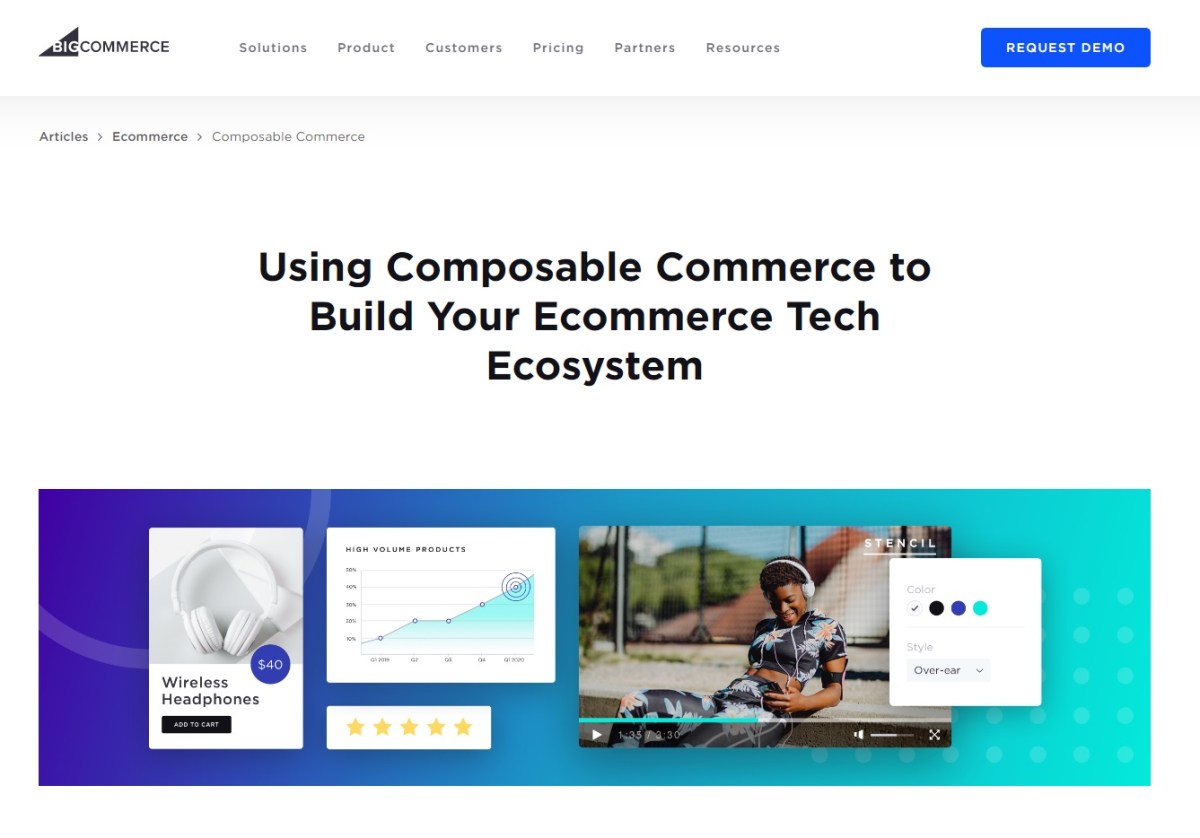Now is the time for enterprise retailers to start making smart investments in their digital tech stacks to future-proof their ecommerce operations to ensure agility and adaptability during periods of economic uncertainty. . Composable commerce will play a definitive role this year giving enterprises the flexibility to customise and diversify their tech stacks to replace components as the business evolves while also proliferating growth.
Consumer behaviours are once again shifting, due to a raft of macroeconomic pressures, and enterprises must seize the opportunity to fortify their market position and secure their staying power.
Future-proofing ecommerce solutions to build business resilience
According to the Australian Bureau of Statistics, retail trade fell 3.9% in December. Consumers are reevaluating how they spend their money, with discretionary spending drying up amid the rising cost of living. Ongoing interest rate rises will continue to have knock-on effects for consumers, and this will ultimately impact how retailers respond to these changing consumption habits.
For retailers, forward-thinking is critical in times of economic slowdown. Digital innovation and investment are key during these periods so retailers can have the flexibility to choose and evolve their tech stacks in order to adapt to changes brought on by economic uncertainty. Remaining agile during these times ensures that retailers continue delivering consumers with seamless shopping experiences without interruption.
Retailers should work to understand their customers’ needs and expectations of an ecommerce platform to best service them through times of economic change. This can be achieved through continuous testing and refinement. Resilience is about creating a business model that is fluid and malleable, rather than rigid and unwavering. Being able to reshape and respond to the environment is key to long-term success.
Composable commerce: Diversify and strengthen your tech stack
Traditionally, ecommerce businesses have relied on an all-in-one monolithic architecture that ties together the front and back-end, limiting its functionality for one that doesn’t impact the other. For enterprise retailers , this approach can fall short as the needs of the business become more complex as it grows.
Enterprise retailers aiming to strengthen their ecommerce tech stacks should look towards a composable commerce approach. Composable commerce is achieved by assembling and combining Packaged Business Capabilities (PBCs). PBCs are software components that meet specific business needs, such as a virtual shopping cart, order management or account management.
Having a flexible commerce solution allows enterprise retailers to diversify their third-party tech solutions with open commerce. Rather than relying on one vendor for all business requirements, composable commerce allows enterprise retailers to combine components into custom tech stacks that can be deployed and interchanged independently. This not only expands a retailer’s offerings, but allows them to address only one area of functionality, without risk of compromising others.
Laying the foundations to continue delivering personalised customer experiences
For enterprises in particular, a composable commerce approach enables them to sell across more channels, reaching more shoppers, and getting a better return on investment.
Planning for a future of growth, Jimmy Brings collaborated with BigCommerce on a composable approach to combine its previous app and websites into one storefront; making it easily maintainable and flexible enough to tolerate any regulatory obligations, have less issues with compatibility, while evolving alongside customer expectations.
Previously, Jimmy Brings’ ecommerce platform was not built for performance and reliability at scale. By embracing a composable approach, the new storefront gave them a hyper-flexible platform and a user experience without limitations. They are now able to innovate with new features and services that help keep them ahead of customer demand. Composable commerce has allowed Jimmy Brings to change tack from simply patching holes, to building a platform focused on future growth, customisable offerings and servicing the needs of customers.
An uncertain economic climate lies ahead and now is the time for businesses to make smart digital technology investments. Employing a more adaptable and future-proof approach to ecommerce enables businesses to respond to unexpected change and build business resilience that strengthens their competitive footing and staying power.
Jordan Sim is senior director of product management at BigCommerce.

